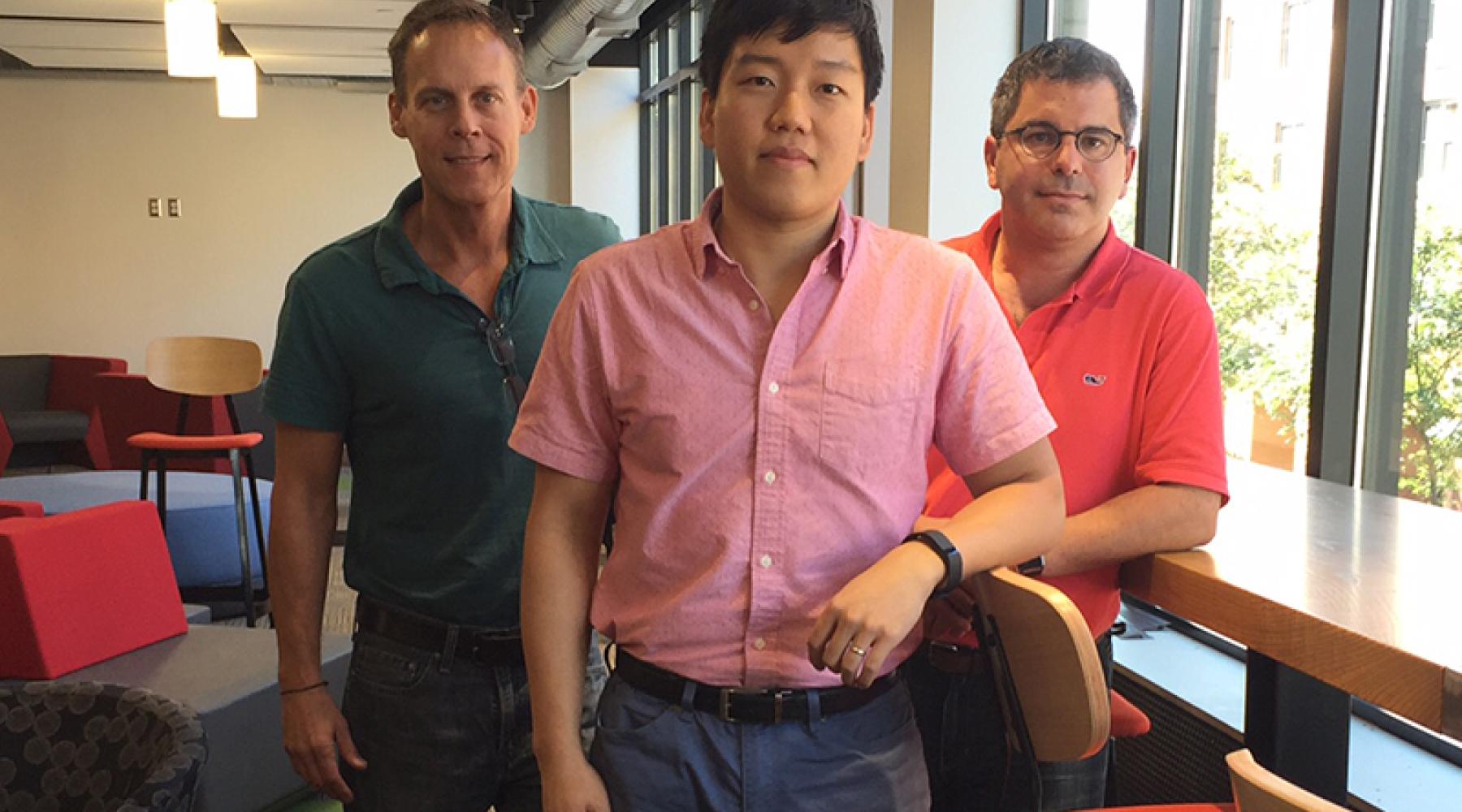
Sparking Ideas
According to Peter Cortle ’10, “There hasn’t been a better time to get involved in entrepreneurship as a student at Cornell.”
Cortle would know. He is the founding director of eHub, a community space for student entrepreneurs that opened this fall through a partnership between Entrepreneurship at Cornell and Student Agencies Foundation with the support of ILR and other schools on campus.
He is also the founder of multiple startup organizations, including Life Changing Labs, a non-profit summer incubator and mentorship network for Cornell entrepreneurs, and Life Changing Summer, a program that teaches entrepreneurship and computer science to students around the world.
Cortle said that when he was an undergraduate, “There was no such thing as a dedicated space for entrepreneurship on campus. We didn’t have facilities like eHub, or as many organizations and programs that supported student entrepreneurs. It was much more difficult to navigate the landscape.”
“Now, if you’re a student looking to get exposed to entrepreneurship, there are many ways to get involved. You can stop by eHub to attend community events, see what it’s like, and get connected to other students and alumni. There is a wide range of resources for students at different stages of the entrepreneurship journey.”
The 15,000-square-foot eHub space is split between the second and third floors of the Student Agencies building at 409 College Ave., along with a first-floor area in Kennedy Hall.
The Kennedy Hall space is primarily used in between classes and for daytime programs. The Collegetown space will host evening and weekend activities such as hackathons, eLab boot camps and Life Changing Labs community events, he said.
“Just having a space dedicated to entrepreneurship is greatly valuable,” Cortle says. “It allows for spontaneous connections and interactions between students that can lead to the creation of new teams, sparking more ideas and innovation.”
Cortle plans to bring more students together and to facilitate those connections.
“We often hear students saying ‘I have a project I’m working on and would like feedback or an early product in beta I need users to test’ – so why not provide a venue for that?”
“We will be having monthly community events where students can casually stop in to enjoy free food and share what they’re working on. This is the type of programming students are currently looking for the most.”
“We’re also planning to host office hours where alumni can re-engage and provide their expertise in areas such as law and finance to our budding entrepreneurs.”
Cortle encourages all students to engage in entrepreneurship.
“This is definitely the best time to explore entrepreneurship and experience what it’s about. After you’ve graduated and have a full-time job, the opportunity cost becomes much greater.”
“Even if you find out it’s not for you, the learnings and takeaways will often be things you can apply in whichever job that you may choose.”
Student entrepreneurs should also be “optimizing for success first and foremost,” rather than focusing on titles, he said.
“We see students at times get caught up in ‘having to be CEO’ and launching a startup for the wrong reasons. This sets you up for a lot of time wasted and failure. ‘Why’ you’re getting involved can be one of the biggest indicators of success.”
“If you’ve experienced a big problem first hand and feel really passionate about bringing to the world the right solution, that lays the groundwork for breakthrough success.”
“Or, if you don’t have your own unique idea quite yet, the best thing you can do is to join another startup that is on the path to succeeding.”
Reflecting on what he learned at ILR, Cortle said, “At first, I thought I might go into law, human resources, or finance, but I quickly caught the entrepreneurship bug. I discovered that I was really interested in building things from the ground up and creating value where it did not exist before.”
“ILR gave me the opportunity to be exposed to a number of things. It’s important for students to figure out what their strengths are so they may play to their strengths.”
“I was able to learn my strengths are bringing people together and working with others in a highly creative environment to build sustaining startup organizations”
He adds with a smile, “We can probably attribute that to the human resources classes in ILR.”


